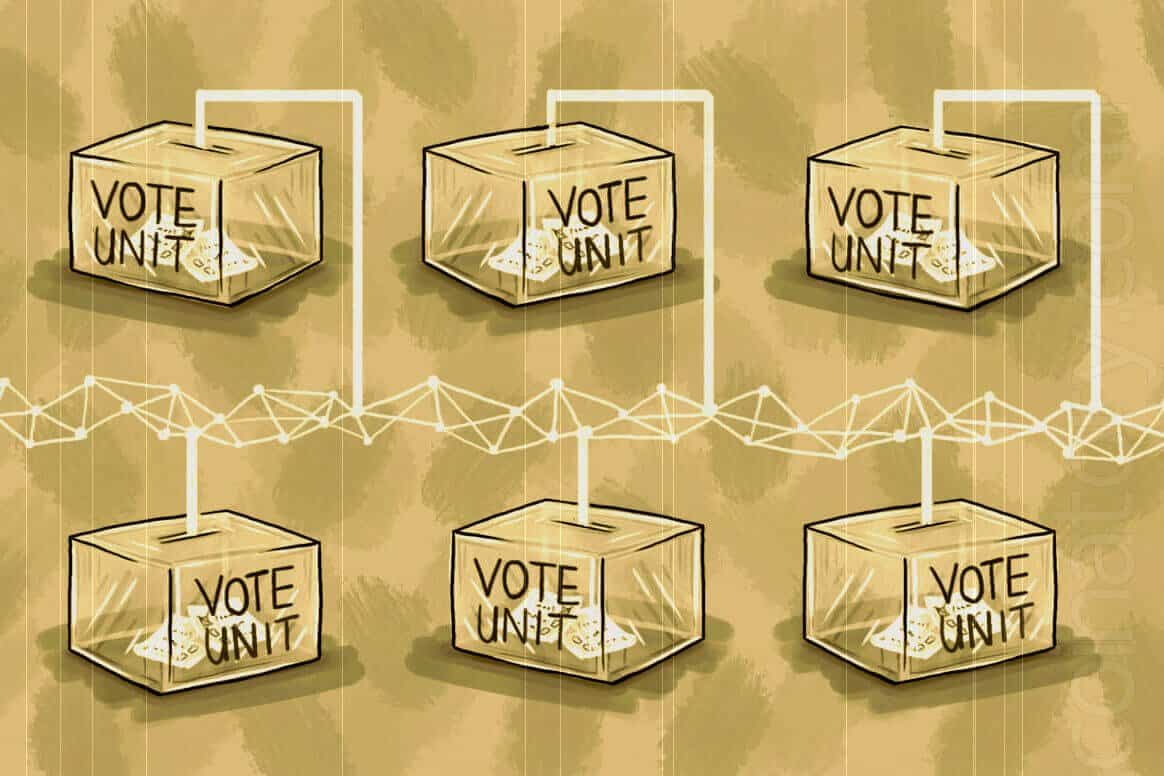
Online voting through blockchain is recommended by many new start-ups as a way to prevent corruption and falsification of votes, making an accurate assessment. The immutability of the blockchain allows you to automatically count votes, creating real-time counting and identity verification, which goes well beyond the simple checks of the identifiers present in today’s paper voting system. It also prevents the voting of dead people or people who have emigrated.
One of the items in the 156-page NASEM report is as follows: “Malicious software on voter devices can change the vote before it reaches the chain of blocks, thereby making it impossible for the security of the blockade.”
Unfortunately, it often happens when people who are not experts in some area draw conclusions, and their conclusion is justified because the premise is wrong. The statement that the Tesla Model S is a bad boat is correct, because it’s not a boat, it’s a car.
Voting on a chain of blocks cannot and should not be done if voters are allowed to use an application for voice casting. Their personality and a vote should be checked on the blockchain, but only if they voted in an environment outside the factors that affect the data.
Voting in cabins
With dedicated voting centers, we simply replace the old, inefficient, highly corrupt paper system with a secure, blockchain-based system.
Voters are granted a private root key, derived from their biometric information and password – for example, both the aperture scan and fingerprints and Ethereum addresses can be generated from this key. Biodata is encrypted and therefore not visible, while the hash of these biometric data remains unique and is constantly monitored in the future.
The generated private key can be used to create a public Ethereum address with additional data tied to age, emigration status, expiration date of the identifier, and so on.
When entering the voting booth, the voter signs his biometric data and password, and this triple multifactor authentication is sufficient to ensure security – much higher than the current simple visual verification of the identifier.
Then the voter is allowed to vote with a simple button that displays the selected voting option on the screen. Given that all this is related to the blockchain, voters can use a third-party application to make sure that their vote has been recorded the way they expected.
For an additional level of security, a voter can have, for example, 6 hours to cancel or change a vote, and he will need to identify himself in the same way.
The blockchain is unchanged, yes, but only in that, that you can not change what has already been done, but you can change the data by entering their new values. Thus, the owner of the key (voter) can have special permissions to change the voting within a certain period of time, which further increases the security of the entire system.
An additional advantage of this approach is that the root key can be used to generate more addresses without making it obvious that they originate from the same key.
Such a set of one-time addresses based on biometric data will facilitate participation in various lotteries, polls, television voting, reviews without identifying the identity of the participant to the absolutely necessary. Such a system can replace the entire current ID card system and a driver’s license system.
Voting at home
Since it is unrealistic to expect that “civilians” will use such methods of voting at home, everything becomes more complicated. One option is a state-authorized device that connects to a computer or smartphone. This device can perform biometric checks and issue transactions for the user after authorization. The only way to abuse this system is to steal the device and force voting or vote for a bribe, both of which are also present in the current system.
Conclusion
Fear of new technology is counterproductive to society. Voting on a blockchain is not only safe, but it is also an ideal evolution of the voting system. There are not so many use cases for the blockchain, but this one is certainly one of them.







